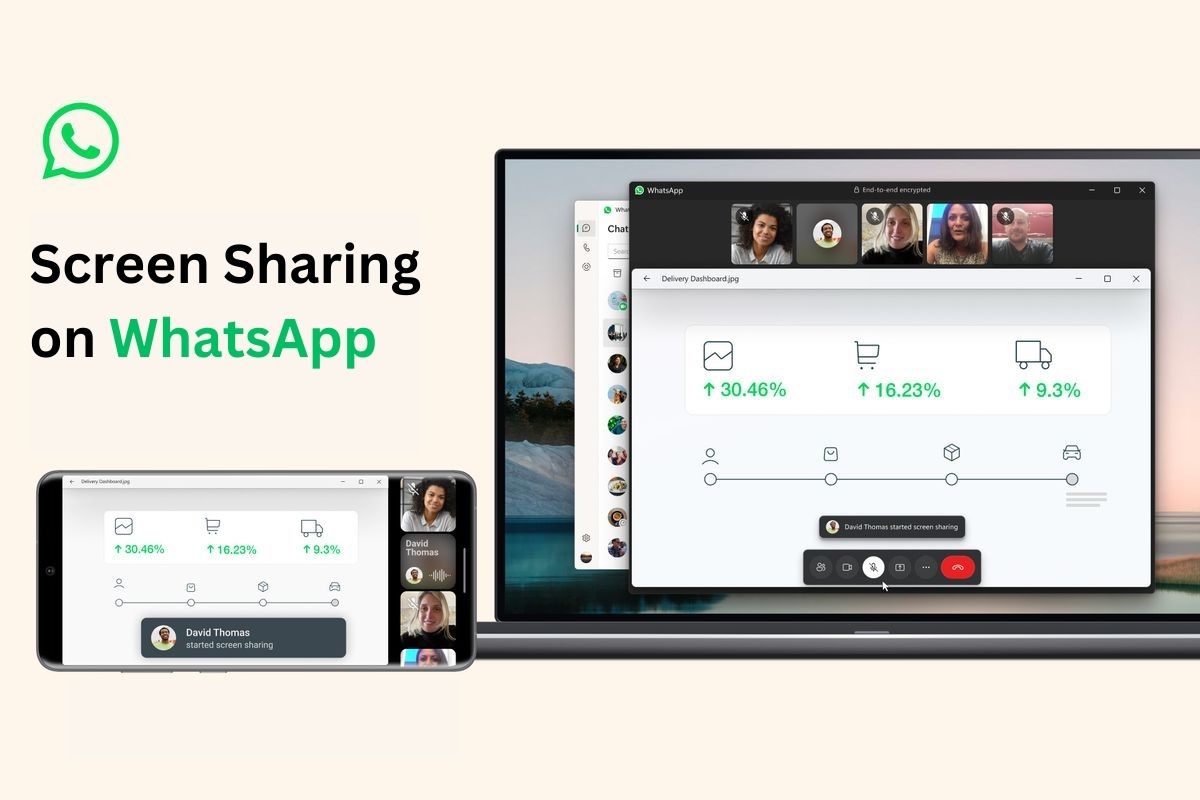WhatsApp has taken a stride towards enhancing its video calling experience by introducing a screen sharing feature, putting it in direct competition with well-established video conferencing platforms such as Microsoft Meet, Google Meet, Zoom, and even Apple’s FaceTime.
Mark Zuckerberg, CEO of Meta (formerly Facebook), announced this exciting addition through a Facebook post and on his Instagram channel. The feature, now available to users, enables the sharing of documents, photos, and even shopping carts with contacts during video calls.
Initially released in late May for select beta testers on Android, the screen sharing feature can be accessed by tapping the ‘Share’ icon. Users have the option to share a specific app or their entire screen, mirroring the functionality seen on popular video conferencing platforms like Google Meet and Zoom.
WhatsApp revealed that the rollout of the screen sharing feature has commenced in phases for Android, iOS, and Windows Desktop users. This means that while not immediately visible to everyone, the feature should become available soon.
In addition to screen sharing, WhatsApp has introduced landscape mode for video calls. This orientation provides a wider and more immersive viewing experience, complementing the existing portrait mode. Landscape mode is expected to be particularly useful when utilizing the screen sharing feature.
Video calling has been a staple of WhatsApp for over six years, initially debuting for all users in November 2016. However, the messaging app continues to evolve its services to stay competitive. Recently, WhatsApp introduced picture-in-picture support for video calls on iOS. It also enabled the sharing of short video messages within chats, recognizing the increasing importance of video communication.
Screen sharing has become a fundamental feature of video conferencing apps, catering to both consumer and professional needs. Apple’s introduction of SharePlay in 2021 allowed iOS users to natively share screens during FaceTime calls. WhatsApp’s expansion of this feature to Android, iOS, and desktop users marks a step forward in providing an all-encompassing video calling experience.
In a world increasingly reliant on digital communication, WhatsApp’s efforts to continuously enhance its platform demonstrate a commitment to meeting evolving user expectations. As screen sharing becomes an integral aspect of remote collaboration and communication, WhatsApp’s integration of this feature positions it well within the competitive landscape of video conferencing and communication apps.



